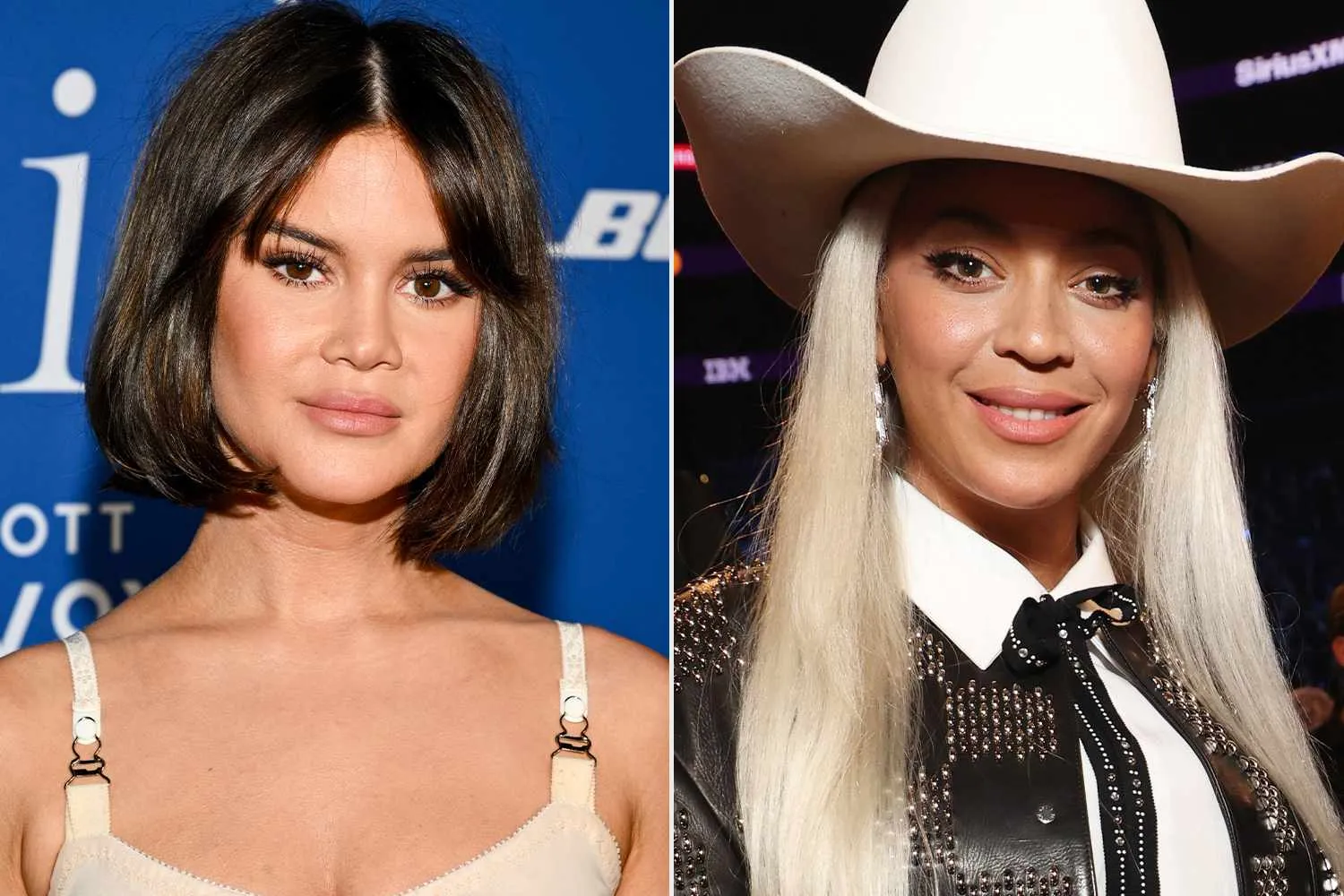
Maren Morris, the Grammy-winning singer-songwriter known for her genre-defying approach to country music, recently made waves by praising Beyoncé for her groundbreaking contributions to the music industry.
In a heartfelt public statement, Morris commended the global icon for “bringing country music back to Black culture,” a sentiment that has sparked important conversations about the roots of American music and its evolving narrative.
Beyoncé, a cultural powerhouse whose influence transcends genres, has often incorporated country elements into her music. Her 2016 album Lemonade prominently featured the song “Daddy Lessons,” a soulful, country-inspired track that celebrated her Southern roots.
The song was hailed as a bold move, blending traditional country sounds with Beyoncé’s signature R&B style. The track was even submitted for consideration at the Country Music Association Awards, igniting discussions about diversity and representation in the historically white-dominated genre.

Morris, a vocal advocate for inclusivity in country music, lauded Beyoncé’s efforts during a recent interview. “Country music has deep roots in Black culture,” Morris said. “What Beyoncé did with ‘Daddy Lessons’ was a reminder of where this genre really comes from.
She didn’t just make a great song; she reclaimed a piece of history.” Her comments underscore a growing recognition within the industry of the genre’s diverse origins, which include African American musical traditions like blues and gospel.
Morris’s praise for Beyoncé comes at a pivotal time for country music. In recent years, the genre has faced criticism for its lack of diversity and its tendency to overlook the contributions of Black artists. While trailblazers like Charley Pride and Darius Rucker have made significant strides, Black artists in country music still remain underrepresented.
Beyoncé’s foray into the genre, even briefly, challenged the status quo and highlighted the potential for more inclusivity.
“Beyoncé’s impact goes beyond the music,” Morris noted. “She reminded us that country music is not just one thing—it’s not limited by race, region, or tradition. It’s a living, breathing art form that belongs to everyone.”
Morris has long been an outspoken figure in the country music community. Known for her willingness to challenge the genre’s conventions, she has used her platform to address issues ranging from gender inequality to racial inclusivity.
Her own music often blends country with pop, R&B, and soul, reflecting her belief that music should be boundaryless. In praising Beyoncé, Morris is not only acknowledging the artist’s talent but also advocating for a broader vision of what country music can be.
Beyoncé’s exploration of country music was not without its critics. When “Daddy Lessons” was released, some purists questioned whether it could truly be considered a country song.
Others dismissed her nomination for country awards as undeserved. However, many artists, including Morris, defended Beyoncé’s right to contribute to the genre, pointing out that music is an ever-evolving art form that thrives on diversity and experimentation.
In her statement, Morris also highlighted the historical ties between country music and Black culture. “The banjo, a cornerstone of country music, has African origins,” she explained.
“So much of what we think of as ‘traditional’ country music is actually rooted in Black musical traditions. It’s important to honor that history.”
The conversation sparked by Morris’s comments has resonated beyond the country music world. Fans and fellow artists have taken to social media to share their thoughts, with many applauding both Morris and Beyoncé for their contributions.
Others have called for more efforts to amplify Black voices in the genre, emphasizing the need for systemic change within the music industry.
For Morris, Beyoncé’s work serves as a reminder of music’s power to unite and inspire. “When Beyoncé released ‘Daddy Lessons,’ it felt like she was saying, ‘This is for everyone.’ That’s what country music should be about—it should be inclusive, not exclusive,” she said.
As the country music industry continues to grapple with questions of diversity and representation, Morris’s praise for Beyoncé offers a hopeful vision of the genre’s future.
By acknowledging the contributions of artists from diverse backgrounds, country music has the opportunity to grow and evolve, reaching new audiences while staying true to its roots.

Maren Morris and Beyoncé, each in their own way, are pushing the boundaries of what country music can be. Through her words and actions, Morris has positioned herself as a champion of change, using her platform to advocate for a more inclusive and authentic vision of the genre.
Beyoncé, meanwhile, has shown that even a brief foray into country music can have a lasting impact, reminding listeners of the genre’s rich and multifaceted history.
In celebrating Beyoncé’s contributions, Morris is not just praising an artist; she is shining a light on a larger cultural shift, one that seeks to reclaim the diverse origins of country music and reimagine its future.
Together, these two trailblazing women are proving that music has no boundaries—and that its power lies in its ability to bring people together, regardless of where they come from or what genre they call home.



